A Comprehensive Guide to Existential Analysis

Table of Contents
- Introduction
- Core Tenets and Assumptions
- History and Development
- Relationship to Other Psychotherapy Models
- Key Concepts
- Techniques and Interventions
- Stages of Treatment
- The Therapeutic Relationship
- Conceptualization of the Self
- Goals of Therapy
- Empirical Support and Limitations
- Practice Settings and Applications
- Existential Analysis Today
- Conclusion
- Bibliography and Further Reading
Introduction
Existential Analysis, also known as Logotherapy, is a meaning-centered approach to psychotherapy developed by Austrian neurologist and psychiatrist Viktor Frankl. Drawing from existential philosophy and phenomenology, Existential Analysis emphasizes the human capacity for meaning-making and personal responsibility in the face of life’s challenges. This article provides a comprehensive overview of Existential Analysis therapy, including its history, core concepts, techniques, and modern applications.
Core Tenets and Assumptions
Existential Analysis rests on several key assumptions about human nature and the human condition:
- The Will to Meaning: Frankl posited that the primary motivational force in humans is the striving to find meaning and purpose in life, rather than the pursuit of pleasure (as in Freudianism) or power (as in Adlerianism).
- Meaning of Life: Meaning in life can be discovered in three main ways: (1) by creating a work or doing a deed; (2) by experiencing something or encountering someone; and (3) by the attitude we take toward unavoidable suffering.
- Freedom and Responsibility: Humans have the freedom to choose their attitude in any given set of circumstances, even in situations of unavoidable suffering. With this freedom comes the responsibility to make meaningful choices.
- Existential Vacuum: Many individuals experience a sense of meaninglessness or emptiness, which Frankl termed the “existential vacuum.” This can lead to various psychological issues.
- Self-Transcendence: Humans are capable of transcending their immediate circumstances and finding meaning by directing their attention outward, toward something or someone other than themselves.
History and Development
Viktor Frankl: Founder of Logotherapy
Viktor Emil Frankl (1905-1997) was an Austrian neurologist, psychiatrist, and Holocaust survivor who founded Logotherapy and Existential Analysis. His experiences in Nazi concentration camps, including Auschwitz, shaped his perspective on human resilience and the search for meaning.
Frankl earned an MD and PhD from the University of Vienna, where he studied under the direction of Otto Pötzl and focused on depression and suicide. He began developing his ideas on Logotherapy before World War II.
During his imprisonment in concentration camps, Frankl observed that those who were able to find meaning and purpose in their suffering were more likely to survive the horrific conditions. This experience reinforced his belief in the importance of meaning and informed the further development of Logotherapy.
After the war, Frankl published his most famous book, “Man’s Search for Meaning” (1946), which outlined his experiences and the basic tenets of Logotherapy. The book became an international bestseller and brought Frankl’s ideas to a wide audience.
Influencers and Collaborators
Frankl’s work was influenced by existential philosophers such as Søren Kierkegaard, Friedrich Nietzsche, and Martin Heidegger, as well as phenomenologists like Edmund Husserl and Max Scheler.
He also drew inspiration from humanistic psychologists like Abraham Maslow and Carl Rogers, although he diverged from them in his emphasis on meaning over self-actualization.
Frankl collaborated with several colleagues in developing and promoting Logotherapy, including:
- Elisabeth Lukas: A psychologist and one of Frankl’s closest students, Lukas helped to systematize Logotherapy and wrote several books on the subject.
- Joseph Fabry: An American psychologist who studied with Frankl and helped to introduce Logotherapy to the United States.
- Alfried Längle: An Austrian psychotherapist who studied with Frankl and developed his own approach, Existential Analysis, which builds upon Logotherapy.
Cultural and Economic Context
Frankl’s experiences in the concentration camps, where he witnessed both extreme cruelty and remarkable resilience, profoundly influenced the development of Logotherapy. In the aftermath of World War II, many individuals were grappling with questions of meaning and purpose in the face of unspeakable atrocities.
The post-war period also saw a growing interest in existentialism, as people sought to understand their place in a world that seemed absurd and meaningless. Frankl’s emphasis on personal responsibility and the search for meaning resonated with many individuals in this context.
At the same time, the dominant psychoanalytic and behaviorist approaches were increasingly criticized for their deterministic views of human nature. Frankl’s humanistic, meaning-centered approach offered a compelling alternative that recognized human agency and the capacity for self-transcendence.
Relationship to Other Psychotherapy Models
Existential Analysis shares some common themes and influences with other existential and humanistic approaches to psychotherapy, such as:
- Existential Psychotherapy: Developed by Irvin Yalom, this approach also emphasizes existential concerns such as death, freedom, isolation, and meaninglessness. However, Yalom places greater emphasis on the therapeutic relationship itself as a vehicle for change.
- Gestalt Therapy: Founded by Fritz Perls, Gestalt therapy shares with Existential Analysis a focus on the present moment and personal responsibility. However, Gestalt therapy places greater emphasis on awareness and the integration of fragmented parts of the self.
- Person-Centered Therapy: Developed by Carl Rogers, this approach shares with Existential Analysis a respect for the client’s autonomy and innate growth potential. However, Rogers placed greater emphasis on the therapist’s unconditional positive regard and empathic understanding as key factors in facilitating change.
- Humanistic Psychology: Existential Analysis is often considered part of the broader humanistic psychology movement, which emphasizes human potential, growth, and self-actualization. However, Frankl diverged from other humanists in his emphasis on self-transcendence and the search for meaning beyond oneself.
Key Concepts
Meaning and Purpose
The central tenet of Existential Analysis is that the primary motivational force in humans is the will to meaning – the striving to find and fulfill a unique purpose in life. Frankl argued that meaning can be found in three main ways: through creative work, loving relationships, and the attitude one takes toward unavoidable suffering.
Freedom and Responsibility
Existential Analysis emphasizes that humans have the freedom to choose their attitude and actions in any given situation, even in the face of extreme adversity. With this freedom comes the responsibility to make meaningful choices and shape one’s own life.
Death and Finitude
The awareness of mortality and the finite nature of existence is seen as a potential source of anxiety but also as a motivator to live authentically and make the most of the time one has.
Authenticity
Existential Analysis encourages individuals to live authentically, in accordance with their values and conscience, rather than conforming to external expectations or succumbing to societal pressures.
Techniques and Interventions
Existential Analysis employs a variety of techniques and interventions aimed at helping clients discover meaning, take responsibility for their choices, and live authentically:
Socratic Dialogue
The therapist engages in a non-directive, questioning dialogue with the client to stimulate self-reflection and insight. The goal is to help the client clarify their values, beliefs, and life goals.
Dereflection
This technique involves shifting the client’s attention away from their problems or symptoms and toward positive aspects of their life and the world around them. The aim is to counteract hyper-reflection and self-absorption.
Paradoxical Intention
In this technique, the client is encouraged to wish for or even exaggerate their symptoms or fears. By doing so, the client gains a sense of control and mastery over their condition.
Attitude Modification
The therapist works with the client to identify and modify negative or self-defeating attitudes and to cultivate a more positive and meaningful outlook on life.
Stages of Treatment
Existential Analysis does not follow a strict, linear protocol but rather adapts to the unique needs and concerns of each individual client. However, the therapy process often involves the following general stages:
- Establishing the therapeutic relationship: Building trust, rapport, and a sense of safety with the client.
- Exploring the client’s worldview: Understanding the client’s values, beliefs, and assumptions about themselves and the world.
- Identifying sources of meaning: Helping the client discover what gives their life purpose and significance.
- Confronting existential concerns: Addressing issues such as freedom, responsibility, isolation, and mortality.
- Facilitating authentic living: Encouraging the client to make choices and take actions that align with their values and goals.
The Therapeutic Relationship
In Existential Analysis, the therapeutic relationship is characterized by genuine encounter, respect for the client’s autonomy, and a non-hierarchical stance. The therapist aims to create a safe, supportive space in which the client can explore their existential concerns and discover their own path to meaning.
Conceptualization of the Self
Existential Analysis views the self as a dynamic, multifaceted entity capable of self-reflection, choice, and transcendence. The self is not seen as a fixed, unchanging essence but rather as a ongoing project shaped by one’s experiences, relationships, and decisions.
Goals of Therapy
The ultimate goal of Existential Analysis is to help individuals lead more authentic, meaningful lives. This involves:
- Discovering and pursuing sources of meaning and purpose
- Taking responsibility for one’s choices and actions
- Cultivating self-awareness and self-acceptance
- Developing a sense of coherence and continuity in one’s life narrative
- Coping effectively with existential givens such as freedom, isolation, and mortality
Empirical Support and Limitations
While Existential Analysis has a strong theoretical foundation, empirical research on its effectiveness is limited compared to some other psychotherapy approaches. The subjective, experiential nature of meaning and authenticity makes these constructs difficult to operationalize and measure in controlled studies.
However, some research has found positive outcomes associated with meaning-centered therapies in general and Logotherapy in particular. For example, studies have shown that Logotherapy can reduce symptoms of depression, anxiety, and post-traumatic stress disorder (PTSD) and improve quality of life in various populations.
The idiographic, non-manualized nature of Existential Analysis can also be seen as a limitation from a research perspective, as it makes standardization and replication of studies challenging. However, proponents argue that this flexibility is necessary to meet the unique needs of each individual client.
Practice Settings and Applications
Existential Analysis can be applied in a variety of clinical settings, including:
- Individual psychotherapy
- Group therapy
- Couples and family therapy
- Crisis intervention
- Palliative and end-of-life care
- Addiction treatment
- Rehabilitation psychology
The approach has also been adapted for use with diverse populations, such as:
- Trauma survivors
- Individuals with chronic or terminal illnesses
- Older adults facing end-of-life issues
- Individuals experiencing career or midlife crises
- Prisoners and others in extreme situations
Existential Analysis Today
Since Frankl’s seminal work, Existential Analysis has continued to evolve and find new applications. Contemporary practitioners have integrated concepts and techniques from other modalities, such as cognitive-behavioral therapy (CBT), narrative therapy, and mindfulness-based approaches.
The existential perspective has also influenced other fields, such as coaching, education, and organizational psychology. For example, meaning-centered coaching aims to help individuals find greater purpose and fulfillment in their work and personal lives.
In an era of rapid technological change, globalization, and social upheaval, the existential themes of meaning, responsibility, and authenticity seem more relevant than ever. As individuals grapple with questions of identity, purpose, and connection in an increasingly complex world, Existential Analysis offers a framework for navigating these challenges.
Conclusion
Existential Analysis, rooted in the work of Viktor Frankl and the existential-humanistic tradition, provides a meaning-centered approach to psychotherapy that emphasizes personal responsibility, authenticity, and self-transcendence. By helping individuals confront existential concerns and discover sources of meaning in their lives, this approach aims to facilitate personal growth, resilience, and fulfillment.
While further research is needed to establish its empirical efficacy, Existential Analysis offers a compelling perspective on the human condition that continues to resonate with clients and practitioners alike. As the field of psychotherapy continues to evolve, the insights and techniques of Existential Analysis are likely to remain a vital part of the therapeutic landscape.
Bibliography and Further Reading
- Frankl, V. E. (1946). Man’s search for meaning. Boston: Beacon Press.
- Frankl, V. E. (1955). The doctor and the soul: From psychotherapy to logotherapy. New York: Alfred A. Knopf.
- Frankl, V. E. (1967). Psychotherapy and existentialism: Selected papers on logotherapy. New York: Washington Square Press.
- Frankl, V. E. (1969). The will to meaning: Foundations and applications of logotherapy. New York: World Publishing.
- Frankl, V. E. (1975). The unconscious god: Psychotherapy and theology. New York: Simon and Schuster.
- Frankl, V. E. (1978). The unheard cry for meaning: Psychotherapy and humanism. New York: Simon and Schuster.
- Frankl, V. E. (1988). The will to meaning: Foundations and applications of logotherapy (Expanded ed.). New York: Meridian.
- Gould, W. B. (1993). Viktor E. Frankl: Life with meaning. Pacific Grove, CA: Brooks/Cole.
- Graber, A. V. (2004). Viktor Frankl’s logotherapy: Method of choice in ecumenical pastoral psychology. Lima, OH: Wyndham Hall Press.
- Hoffman, E. (1995). The drive for self: Alfred Adler and the founding of individual psychology. Reading, MA: Addison-Wesley.
- Kimble, M. A., & Ellor, J. W. (2000). Logotherapy: An overview. In F. T. L. Leong & A. Zachar (Eds.), Encyclopedia of psychology (Vol. 5, pp. 107-110). Washington, DC: American Psychological Association.
- Längle, A. (2003). The art of involving the person: Fundamental existential motivations as the structure of the motivational process. European Psychotherapy, 4(1), 25-36.
- Längle, A. (2004). The search for meaning in life and the existential fundamental motivations. Existential Analysis, 16(1), 2-14.
- Längle, A., & Sykes, B. M. (2006). Viktor Frankl – Advocate for humanity: On his 100th birthday. Journal of Humanistic Psychology, 46(1), 36-47.
- Lukas, E. (1998). Logotherapy textbook: Meaning-centered psychotherapy consistent with the principles outlined by Viktor E. Frankl, MD. Toronto: Liberty Press.
- Lukas, E. (2000). Meaning-centered family therapy. The International Forum for Logotherapy, 23(2), 95-104.
- Marshall, M. (2011). Prism of meaning: Guide to the fundamental principles of Viktor E. Frankl’s logotherapy. Charlottesville, VA: Purpose Research.
- Schulenberg, S. E., Hutzell, R. R., Nassif, C., & Rogina, J. M. (2008). Logotherapy for clinical practice. Psychotherapy: Theory, Research, Practice, Training, 45(4), 447–463.
- Shantall, T. (2003). The quest for destiny: A logotherapeutic guide to meaning-centered living, therapy and counseling. Pretoria, South Africa: University of South Africa Press.
- Wong, P. T. P. (2012). From logotherapy to meaning-centered counseling and therapy. In P. T. P. Wong (Ed.), The human quest for meaning: Theories, research, and applications (2nd ed., pp. 619-647). New York: Routledge.
- Yalom, I. D. (1980). Existential psychotherapy. New York: Basic Books.




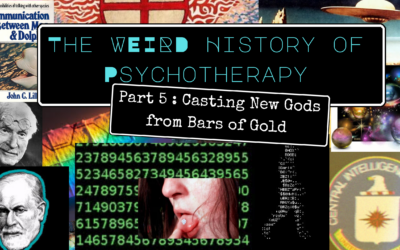
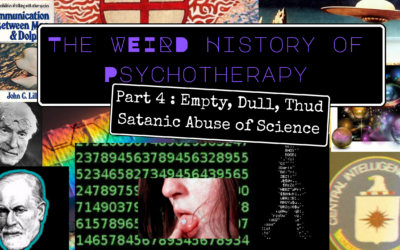
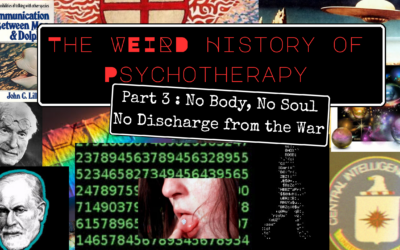
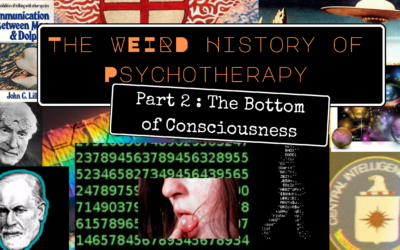

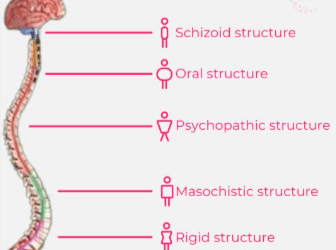













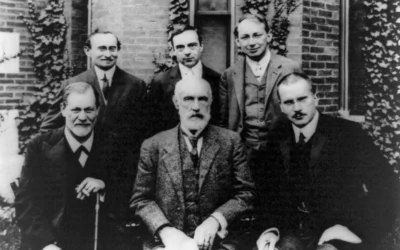
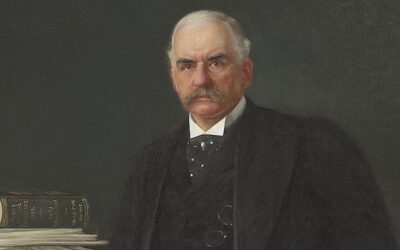
0 Comments